Navigation
Install the app
How to install the app on iOS
Follow along with the video below to see how to install our site as a web app on your home screen.

Note: This feature currently requires accessing the site using the built-in Safari browser.
More options
You are using an out of date browser. It may not display this or other websites correctly.
You should upgrade or use an alternative browser.
You should upgrade or use an alternative browser.
Expressionism
- Thread starter abraxas
- Start date
ksmattfish
Now 100% DC - not as cool as I once was, but still
- Joined
- Aug 25, 2003
- Messages
- 7,019
- Reaction score
- 36
- Location
- Lawrence, KS
- Website
- www.henrypeach.com
- Can others edit my Photos
- Photos NOT OK to edit
Always. The camera is a very crude device. It does not see or experience reality like I do.
"When I'm ready to make a photograph, I think I quite obviously see in my minds eye something that is not literally there in the true meaning of the word. I'm interested in something which is built up from within, rather than just extracted from without." -Ansel Adams
"If you just click the shutter, you are stealing from reality ! I cant be a thief ! I must create!" -Barbara Morgan
"Photography, as we all know, is not real at all. It is an illusion of reality with which we create our own private world." -Arnold Newman
"Camera and eye are together a time machine with which the mind and human being can do the same kind of violence to time and space as dreams." -Minor White
"People say photographs don't lie, mine do." -David LaChapelle
"When I'm ready to make a photograph, I think I quite obviously see in my minds eye something that is not literally there in the true meaning of the word. I'm interested in something which is built up from within, rather than just extracted from without." -Ansel Adams
"If you just click the shutter, you are stealing from reality ! I cant be a thief ! I must create!" -Barbara Morgan
"Photography, as we all know, is not real at all. It is an illusion of reality with which we create our own private world." -Arnold Newman
"Camera and eye are together a time machine with which the mind and human being can do the same kind of violence to time and space as dreams." -Minor White
"People say photographs don't lie, mine do." -David LaChapelle
abraxas
No longer a newbie, moving up!
- Joined
- Aug 15, 2006
- Messages
- 10,417
- Reaction score
- 9
- Can others edit my Photos
- Photos NOT OK to edit
Always. The camera is a very crude device. It does not see or experience reality like I do.
...
Inspiring quotes- thanks.
Just thinking lately about how it seems that if images are produced -by the numbers- ie: consistant processing, histograms, adjustments, etc, especially in landscapes, and it's just a recording of conditions. Other than composition, what would be the difference from them being shot by a machine? Doesn't seem to be any sense to it unless there's some type of individual expression brought about, and how could that be done?
Last edited:
Hawaii Five-O
My alter-egos have been banned. :( Now I must be
- Joined
- Jun 2, 2008
- Messages
- 1,099
- Reaction score
- 0
- Can others edit my Photos
- Photos OK to edit
Do you ever try expressing how you feel about a scene when shooting rather than producing so much of an objective representation?
Is that another way of asking if we are creative when taking a photo?
abraxas
No longer a newbie, moving up!
- Joined
- Aug 15, 2006
- Messages
- 10,417
- Reaction score
- 9
- Can others edit my Photos
- Photos NOT OK to edit
Is that another way of asking if we are creative when taking a photo?
In a sense, but more like using the image to express an artist's emotions.
Expressionism
A movement in the arts during the early part of the 20th century that emphasized subjective expression of the artist's inner experiences.
www.fineartregistry.com/faqs/art_glossary.php
More particularly in landscapes.
Battou
TPF junkie!
- Joined
- May 10, 2007
- Messages
- 8,047
- Reaction score
- 66
- Location
- Slapamonkey, New York
- Website
- www.photo-lucidity.com
- Can others edit my Photos
- Photos NOT OK to edit
I do not think, therefore I fail.
ksmattfish
Now 100% DC - not as cool as I once was, but still
- Joined
- Aug 25, 2003
- Messages
- 7,019
- Reaction score
- 36
- Location
- Lawrence, KS
- Website
- www.henrypeach.com
- Can others edit my Photos
- Photos NOT OK to edit
...if images are produced -by the numbers- ie: consistant processing, histograms, adjustments, etc, especially in landscapes, and it's just a recording of conditions. Other than composition, what would be the difference from them being shot by a machine? Doesn't seem to be any sense to it unless there's some type of individual expression brought about, and how could that be done?
That's why Henri Cartier-Bresson referred to photography as "the artless art". He meant that the gear, materials, and processes made photography very easy, and that the skills necessary to create a technically competent photograph were fairly easily learned (compared to most other arts) by anyone who chose to make the effort. All that's left is the photographer's eye and mind, and the aesthetic side of the photo. Composition is a big part of that, but there are other considerations and choices too.
Put your camera on "green square" and the default in-camera processing, and go out photographing only thinking about composition. Take the files straight from the camera, and drop them off at a lab for uncorrected printing. While some of the photos will come out fine (composition and subject choice are major aspects of whether a photo will be percieved as good or not) on most I bet you'll be able to see where the finished print could have been improved if you had been more involved in making choices in exposure, processing, and printing.
There are a lot of choices that can be made between adjusting exposure to picking the paper type for the print. I can't speak for anyone else, but at the point I'm at in my study of photography many of these decisions are made without really thinking about it. It's just become intuitive as I consider the scene before me, and how I want it to look in print.
With film it's advantageous to work consistantly and by the numbers, at least as far as exposure and processing goes. It has to be planned in advance as it's very difficult to see the changes being made during processing, and they are permanent. Even so I'll have the opportunity to make changes during the printing stage. A friend of mine who shot landscape with 4x5 E6 would take 3 identical shots of everything. He'd drop the 1st sheet off at the lab, and see how it turned out with the standard E6 processing. If he needed to adjust the processing he could drop off the next sheet with processing change instructions, and fine tune it even further with the final sheet.
With digital I process by inspection; if I goof up, or try something that doesn't work out I just start over. I pay attention to the numbers, they tell me useful info, but I trust my eye more (as long as I understand or minimize the differences between how the photo looks on my monitor and how the photo will look on paper). While digital can seem math and number oriented, I actually feel that I have many more creative choices with digital than I did with film. So many more that even though I loved my traditional darkroom in the past there was no way it was going to satisfy me in the future.
Long before Ansel Adams was a photographer, he liked hiking in nature. He carried a simple box camera, and took photos of the places he visited. He was very disappointed in how the photographs he got back from the lab didn't convey the sense of grandeur he felt when actually at the location. He was perplexed that his eye and mind could see the world one way, and the camera would record it very differently. He decided to study photography because he wanted to create photographs that would give the viewer a sense of the feeling he felt when actually at the location.
Good reading would be the first chapter of Ansel Adams' book "The Camera" where he discusses visualization. Another good book by Adams is "The Making of 40 Photographs". He gives several examples of how a straight contact print from the neg doesn't look anything like the final print (Moonrise over Hernandez, NM is one). Google the terms "visualization", "previsualization" and "expressive print" (add the keyword photography to help define the search) for articles by various photographers.
"The use of the term "art medium" is, to say the least, misleading, for it is the artist that creates a work of art not the medium. It is the artist in photography that gives form to content by a distillation of ideas, thought, experience, insight and understanding." -Edward Steichen
"Dodging and burning are steps to take care of mistakes God made in establishing tonal relationships!" -Ansel Adams
invisible
Been spending a lot of time on here!
- Joined
- Mar 10, 2007
- Messages
- 5,213
- Reaction score
- 983
- Location
- Canada
- Website
- www.federicobuchbinder.com
- Can others edit my Photos
- Photos NOT OK to edit
I don't make any conscious effort to express how I feel about a scene when shooting probably because I don't think anyone is interested in what I feel about any scene. That being said, there's no such thing as an objective photograph (not since Roland Barthes, anywayDo you ever try expressing how you feel about a scene when shooting rather than producing so much of an objective representation?
Kent Dunne
TPF Noob!
- Joined
- Aug 30, 2008
- Messages
- 16
- Reaction score
- 0
- Location
- Hudson, Ohio
- Website
- www.kentdunne.com
- Can others edit my Photos
- Photos NOT OK to edit
When I went to India earlier this summer, I went specifically for photography. I thought I would go for 3 weeks, travel around and shoot shoot shoot. I thought I would come back with tons and tons of new photos for my portfolio that will blow people away.
That was not the case. I was so blown away by their culture that I simply couldn't document what I saw, I felt like that would just be like everyone else. I grew up in Ohio (not exactly a hotbed of culture), and though I have been to Europe plenty of times, India simply blew me away.
About a week into the trip I was lying in bed when I realized that I couldn't just shoot India- tons of people do that. I would come back with some nice photographs of India, just like everyone else has who has been to India. It would look nice in my portfolio, and people would say "oh wow, he's been to India. But what is that to me?
I was thrust into this culture and experienced a feeling that I never felt before. I needed to try and document it somehow. This complete immersion and overtake of culture to me. Simply shooting starving kids and rickshaws wasn't going to do it for me. I learned in these 3 weeks how to manipulate people to do what I want them to do, how to get them to get into the shot I wanted to take, all to try and document their culture.
I don't think I succeeded very well. Coming back, it seems like I took a bunch of typical tourist photos of poor children, but God did I learn exactly what you're talking about with expressionism. It's probably the most valuable thing I've learned as a photographer. Now I have a hard time pressing the shutter when I don't think the photo is giving off exactly what I'm feeling.
So my answer is yes. Anyone can take a picture of an event, that's easy, but it's very very hard to get your feeling into the picture. Sometimes, the thing that catches your eye in a scene and makes you think about it isn't what will catch someone else's eye, so you have to manipulate your framing to "help other people out" with what you were trying to convey.
My 2¢.
-kent dunne
That was not the case. I was so blown away by their culture that I simply couldn't document what I saw, I felt like that would just be like everyone else. I grew up in Ohio (not exactly a hotbed of culture), and though I have been to Europe plenty of times, India simply blew me away.
About a week into the trip I was lying in bed when I realized that I couldn't just shoot India- tons of people do that. I would come back with some nice photographs of India, just like everyone else has who has been to India. It would look nice in my portfolio, and people would say "oh wow, he's been to India. But what is that to me?
I was thrust into this culture and experienced a feeling that I never felt before. I needed to try and document it somehow. This complete immersion and overtake of culture to me. Simply shooting starving kids and rickshaws wasn't going to do it for me. I learned in these 3 weeks how to manipulate people to do what I want them to do, how to get them to get into the shot I wanted to take, all to try and document their culture.
I don't think I succeeded very well. Coming back, it seems like I took a bunch of typical tourist photos of poor children, but God did I learn exactly what you're talking about with expressionism. It's probably the most valuable thing I've learned as a photographer. Now I have a hard time pressing the shutter when I don't think the photo is giving off exactly what I'm feeling.
So my answer is yes. Anyone can take a picture of an event, that's easy, but it's very very hard to get your feeling into the picture. Sometimes, the thing that catches your eye in a scene and makes you think about it isn't what will catch someone else's eye, so you have to manipulate your framing to "help other people out" with what you were trying to convey.
My 2¢.
-kent dunne
Alpha
Troll Extraordinaire
- Joined
- Mar 15, 2005
- Messages
- 5,451
- Reaction score
- 41
- Location
- San Francisco
- Can others edit my Photos
- Photos NOT OK to edit
I don't like "isms."
And I agree with Matt.
And I agree with Matt.
THORHAMMER
No longer a newbie, moving up!
- Joined
- Dec 24, 2005
- Messages
- 2,789
- Reaction score
- 8
tons of stuff you arent even aware your doing give your photographs a sort of digital thumbprint. The more you do on purpose the more distinction you have, but think of all the variances,
angle, height, pov through zoom, focus, aperture, exposure, subject, coloring, timing, time of day, place etc.... this is all how your eyes see that moment.
angle, height, pov through zoom, focus, aperture, exposure, subject, coloring, timing, time of day, place etc.... this is all how your eyes see that moment.
Hawaii Five-O
My alter-egos have been banned. :( Now I must be
- Joined
- Jun 2, 2008
- Messages
- 1,099
- Reaction score
- 0
- Can others edit my Photos
- Photos OK to edit
I'm not too sure about that Barbra Morgan, no matter how a person creates interest in a photo, they are still "stealing" according to her. Thats why they are referenced as "capturing a photo"
Actually though, photography isn't about the photographer at all. Photography looks outward, it captures the moment of someone or something. It tells a the story of beauty, love , strife, pain, joy, and bordom, or whatever else.
If I take shot of Serbian refugees running for their lives, how can it ever be about me or my expression?
The only way a photo can ever show my expression is if I am in front of it. Thats why people say" thats too bad you weren't in the photo", and then you say" well I was taking the photo"
otherwise I am just the monkey behind the camera pushing buttons.
photos are never composed by me , but I capture the composure
I htink to be a great photographer, you ( I) have to look outwardly, instead inwardly about my skill and myself.
painting and drawing on the other hand can express both sides of the story of the subject and the artist.
Actually though, photography isn't about the photographer at all. Photography looks outward, it captures the moment of someone or something. It tells a the story of beauty, love , strife, pain, joy, and bordom, or whatever else.
If I take shot of Serbian refugees running for their lives, how can it ever be about me or my expression?
The only way a photo can ever show my expression is if I am in front of it. Thats why people say" thats too bad you weren't in the photo", and then you say" well I was taking the photo"
otherwise I am just the monkey behind the camera pushing buttons.
photos are never composed by me , but I capture the composure
I htink to be a great photographer, you ( I) have to look outwardly, instead inwardly about my skill and myself.
painting and drawing on the other hand can express both sides of the story of the subject and the artist.
Last edited:
ksmattfish
Now 100% DC - not as cool as I once was, but still
- Joined
- Aug 25, 2003
- Messages
- 7,019
- Reaction score
- 36
- Location
- Lawrence, KS
- Website
- www.henrypeach.com
- Can others edit my Photos
- Photos NOT OK to edit
I just started reading "The Perfect Photograph" by Andreas Feininger. It covers a lot of the potential creative choices and manipulations available to the photographer. It was published in 1974, but he goes into fundamental concepts rather than technical details, so the info is just as applicable to digital. I got my copy for $5 at a used bookstore.
http://images.google.com/images?hl=en&q=Andreas Feininger&um=1&ie=UTF-8&sa=N&tab=wi
http://images.google.com/images?hl=en&q=Andreas Feininger&um=1&ie=UTF-8&sa=N&tab=wi
passerby
TPF Noob!
- Joined
- Jan 21, 2008
- Messages
- 591
- Reaction score
- 0
- Can others edit my Photos
- Photos NOT OK to edit
Do you ever try expressing how you feel about a scene when shooting rather than producing so much of an objective representation?
In my opinion unless you are paid photographer than what you shoot most likely are the inner expression. I don't think I shoot to please other people but myself. I believe it is automatic for all of us.
Expressionism is more of a term for the painting arts, where the artists distorts a scene to impart the artists deep emotional strife, Van Gogh for example.
For an artist, it is very much about feelings as you stated, one does not purposely try to impart that in ones work. It comes as a function of working and the artists deep emotional connection to create at that time and place. Couple with that deep emotional response the ability to see photographically and with vision, the resulting work will connect with viewers on a similar level.
If you take two photoraphers, and set them out on the same scene, one being an experienced seer and the other not, and although they may be on par technically, both had great emotional connections to the scene, how they see makes all the difference in the final work between the two. It is about seeing the sum of the parts as a whole to create a composition, something a machine can not do.
For an artist, it is very much about feelings as you stated, one does not purposely try to impart that in ones work. It comes as a function of working and the artists deep emotional connection to create at that time and place. Couple with that deep emotional response the ability to see photographically and with vision, the resulting work will connect with viewers on a similar level.
If you take two photoraphers, and set them out on the same scene, one being an experienced seer and the other not, and although they may be on par technically, both had great emotional connections to the scene, how they see makes all the difference in the final work between the two. It is about seeing the sum of the parts as a whole to create a composition, something a machine can not do.
Last edited:
Most reactions
-
 428
428 -
 287
287 -
 282
282 -
 266
266 -
 222
222 -
 198
198 -
 182
182 -
 179
179 -
 164
164 -
 164
164 -
 150
150 -
 130
130 -
 120
120 -
 95
95 -
I
94
Similar threads
- Replies
- 13
- Views
- 380

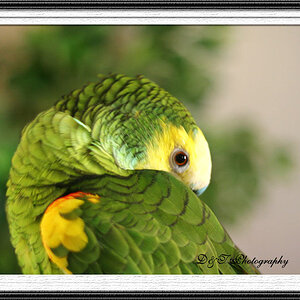
![[No title]](/data/xfmg/thumbnail/41/41779-303c41fcb3e37507cbe986d76dbfcf85.jpg?1619739890)
![[No title]](/data/xfmg/thumbnail/41/41755-a922f39cc29ff8f6e66a197508bf99f3.jpg?1619739881)
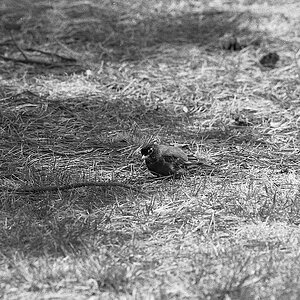
![[No title]](/data/xfmg/thumbnail/30/30887-70db98f68651b2f6c62119e611f707c0.jpg?1619734499)

![[No title]](/data/xfmg/thumbnail/38/38734-a0c4ec46a440db881aca3700b0c62879.jpg?1619738703)
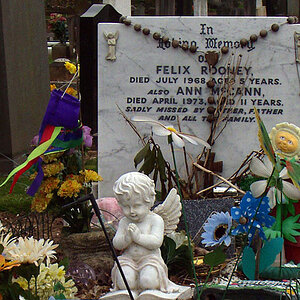
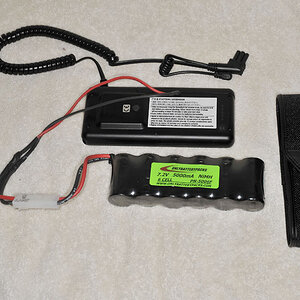
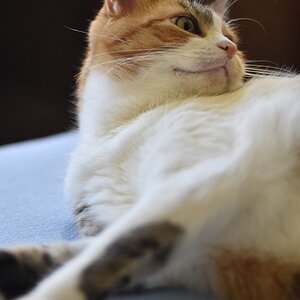
![[No title]](/data/xfmg/thumbnail/30/30886-4d4f2b370f36c175a23901cc8689aea4.jpg?1619734498)
![[No title]](/data/xfmg/thumbnail/30/30883-04222f7ae234efdf80dff6f96ddad16f.jpg?1619734495)